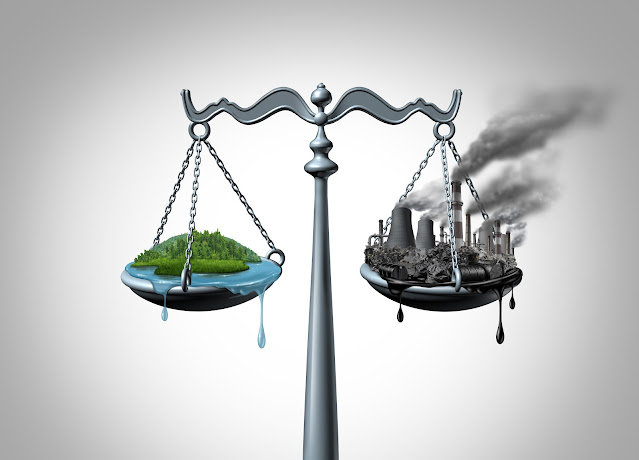When you start your own business, there’s a long checklist of various documents you need to complete before cutting the ribbon. These are important requirements that will grant your business permits and license to operate.
One of the most important requirements is compliance with state and federal environmental law. These are necessary for regulators to know that you’re following specific rules and regulations that would contribute to the safety and protection of the environment.
In addition, environmental compliance is more than just helping mother nature. It is also about encouraging businesses to find the best ways to conserve energy and water and harvest them from more natural sources.
On the other hand, you should see this as an excellent opportunity rather than a tedious government requirement. Complying with environmental law may offer more benefits to your company than you thought. In fact, it is more than just being environmentally responsible as it affects your long-term goals and plans positively.
Furthermore, here is a brief guide you might want to read to learn more about environmental compliance for businesses.
Who Monitor Businesses And Enforce Environmental Regulations?
Environmental regulations are enforced by the Environmental Protection Agency (EPA). Under the state agency are businesses usually involved in chemicals, automotive, paints and coatings, metal works, and agricultural services.
The agency is strictly enforcing its duties to protect the environment. Failure to comply with their standards will result in legal consequences, such as cessation of business operations and hefty legal fines.
To prevent this, it would be best to consult a lawyer who specializes in environmental laws and regulations to make sure that your business is always in compliance with these rules. For example, they can help your company initiate procedures that will significantly reduce office waste.
What Are The Required Permits?
As mentioned above, these are permits that would grant your business the right to operate as long as the business can show compliance with environmental regulations. These permits are based under different federal laws, such as:
• Clean Air Act (CAA)
Is your business producing possible air pollutants, such as dust, smoke, chemical fumes, and more? If you think so, you will need to get operating permits under the Clean Air Act. The CAA is a comprehensive law that monitors air emissions from businesses to mobile sources, such as public and private transport vehicles.
Usually, permits are issued by state and local offices. These permits will also clarify what businesses need to do to control their emissions according to the act. Furthermore, your lawyer can help you comply with the requirements and acquire the necessary permits.
• Clean Water Act (CWA)
Is your business discharging pollutants that could destroy the quality of water, such as toxic chemicals? Then, you may need to meet requirements and permits before you can operate under the Clean Water Act.
The Clean Water Act is a federal environmental law created to regulate the discharge of pollutants directly into streams of water, such as rivers, lakes, and oceans. The law also regulates the maximum quality of surface waters.
Under the CWA, the agency has created programs to control water pollution, such as setting wastewater standards for different industries. Furthermore, it would be best to seek legal help from an attorney to make sure that you comply with the permits and requirements.
• Federal Insecticide, Fungicide, And Rodenticide Act (FIFRA)
If your business produces, uses, and distributes pesticides, you will need a permit under the Federal Insecticide, Fungicide, and Rodenticide Act. This law regulates the use, distribution, and sale of pesticides, and all of them must be registered under this law.
In addition, if the applicant wants to get the permit from EPA, the applicant should prove that the proper usage of the pesticide will not cause harm to the environment. With regards to the usage of pesticides, it is required that at least one team member is trained and certified to use them in accordance with the standards set by the EPA.
According to the law, it is necessary to register the chemicals you will use, even if they are only administered once. However, you don’t need to do this if there’s a third-party company that will do it for you.
• Resource Conservation And Recovery Act (RCRA)
This law allows the EPA to control and regulate the activity of treating, storing, and disposing of non-hazardous and hazardous waste, such as petroleum. It also includes how the business transports and generates them.
If the CWA and CAA already cover the business with hazardous waste, there’s no need for RCRA permits. However, you need to comply with RCRA if your business is out of the scope of CWA and CAA. The permit you need to obtain will allow you to handle any potentially hazardous waste.
What Happens If Your Business Violated Environmental Regulations?
If the EPA found out that your business violated environmental laws and regulations, you might face action from the authorities. The penalty may depend on the severity of the violation. You may be required to pay for a pollution cleanup as a result of your offense. In severe cases, a civil lawsuit against the company may be commenced where the court may impose fines and payment for damages.
Final Words
Every business, big or small, is required to comply with environmental laws. These laws regulate and ensure that disposal of hazardous waste, discharge of pollutants in the water, distribution of pesticides, and emission of pollutants in the air are done within the limits set by law.
These limitations are created to ensure that businesses will not cause significant damage to the environment, and any toxic or hazardous chemicals are minimized to a level that is considered safe for the general public.
Violating environmental laws and regulations may result in legal consequences, such as civil lawsuits, fines, and other penalties. To avoid this, acquiring permits and complying with the limitations set in the law is crucial. Also, since environmental laws may constantly change from time to time, a competent lawyer will ensure that you are always in compliance with new regulations.


Comments
Post a Comment